Genital Herpes Symptoms:
What Is Herpes And What Does It Look Like?


What is Genital Herpes?
Before we dive into the most common symptoms of genital herpes, it may be helpful to answer the question “what is herpes?”. Genital herpes is the most common sexually transmitted infection (STI) worldwide. It is caused by the herpes simplex virus (HSV). Herpes simplex is the same virus that causes cold sores. Just like cold sores, genital herpes is extremely contagious and is typically spread via skin-to-skin contact, kissing, sex (vaginal, anal and oral) and sharing sex toys
There are two different types of HSV:
HSV Type 1: This is the most common cause of genital herpes as it can be transmitted from cold sores and oral sex.
HSV Type 2: This type is less common but it is more likely to be associated with recurrent genital infections.
Both types can spread to the face (causing cold sores) or genitals (causing genital herpes) or other areas of the body. It is possible to have both types of this virus.
How is Genital Herpes Passed On?
As mentioned above, genital herpes is extremely contagious and is transmitted through skin-to-skin contact with a person who has the virus.
The risk of spreading the herpes simplex virus to another person is greatest when symptoms are present (cold sores or genital lesions). However, HSV can be spread by those who carry the virus but do not have any symptoms as the shedding skin will carry the virus and infect another person. In fact, the majority of infections are spread by those with no symptoms (asymptomatic).
Herpes simplex can be spread from one place on your body to another. If you touch lesions around your mouth (cold sores), you can carry the virus on your fingers and spread it to your genitals for example. The virus can be spread to your partner in this way, or during intimate sexual contact, regardless of where the active lesions are located.
It is true that cold sore lesions can lead to genital herpes!
Herpes lesions are contagious from the moment of the first tingling/ itch until they have completely healed. You can reduce the risk of transmitting genital herpes by:
- Not touching any active lesions or blisters. If you do, ensure you wash your hands.
- Avoiding intimate contact if you or your partner have cold sore lesions or symptoms to suggest a flare is starting.
- Avoiding all sexual contact if you or your partner has active genital lesions This means avoiding vaginal, oral, and anal sex until all blisters have completely healed.
- Using a condom every time you have vaginal, anal, or oral sex – even if you are not currently experiencing symptoms. This does not provide complete protection as the condom will only cover the skin of the penis, but it will reduce the risk of getting this virus.
- Putting a condom on sex toys before use and washing them thoroughly after use. Alternatively, avoid sharing sex toys.

Genital Herpes Symptoms: The Most Common Signs & Symptoms
Now that we have a good understanding of what genital herpes is and how it is transmitted, let’s take a look at the most common symptoms associated with this STI.
The question “what does herpes look like?” can be difficult to answer because most people will not have any symptoms. This is one of the biggest issues when trying to reduce the risk of spreading/ acquiring the infection.
When symptoms are present they include:
- A tingling, burning or itching sensation around your genitals
- Small blisters that turn into red, open sores when they burst. You may experience these blisters on your genitals, anus, bottom, or thighs.
- Pain when urinating
- Women may also notice unusual vaginal discharge.
If you become infected with the herpes simplex virus, it can lie dormant for a long time (months or years) before you experience any symptoms. Because of this, it can be difficult to trace where you picked up the infection.
If you develop any of these symptoms for the first time, it is essential that you attend your local GP or sexual health / GUM clinic for an in-person assessment so that the diagnosis can be confirmed.
A diagnostic swab for typing the virus should be taken. This will confirm if you have type 1 or type 2 HSV and is very useful for future management. The swab does not need to be re-taken during any future flares. You should have screening for other STIs at this time.
How to Reduce The Frequency of Breakout Episodes
Unfortunately, once infected with HSV, it is likely that you will experience flares of this infection from time to time. These flares vary from person to person and usually become less frequent and severe over time. You can reduce the frequency of genital herpes symptom flares by avoiding things that trigger symptoms. Some of the most common triggers include:
- Friction in your genital area: to avoid this, avoid wearing tight-fitting clothing and use lubricant during sex
- Drinking excess alcohol
- Smoking tobacco
- Ultraviolet light: try to avoid genital exposure while sunbathing or using sunbeds
- Fatigue: try to ensure you get adequate good quality sleep
There are some other common triggers that may be harder to avoid, such as:
- Stress
- Hormonal changes during the menstrual cycle
- Surgery to the genital area
- Being sick or unwell
- A compromised immune system: this could be the result of taking immunosuppressant medication, receiving chemotherapy or having a chronic illness

How Do You Control Your Herpes Outbreaks?
Some outbreaks may be mild and you might not need any prescription treatment from your doctor. Herpes symptoms often clear up by themselves over time. There are some things that you can do to ease discomfort and aid healing:
For instance, you should:
- Keep the area clean using plain or salt water. This will help keep the blisters and sores from becoming infected.
- Soothe pain and inflammation by applying an ice pack wrapped in a tea towel or flannel to the affected area.
- Pour water over your genitals whilst urinating to ease the pain.
- Apply petroleum jelly (such as Vaseline) to the affected area to help reduce pain whilst urinating.
- Wash your hands thoroughly before and after applying cream or jelly.
You should avoid:
- Putting ice directly on the skin as that can damage the skin and nerves.
- Touching blisters and sores, unless applying cream or jelly.
- Wearing tight clothing that may rub on and irritate the blisters and sores.
- Engaging in vaginal, anal or oral sex until the sores/blisters have completely healed.
Repeat Prescription
Genital Herpes Treatment
Where Can I Get A Prescription for Genital Herpes Treatment?
You can request a prescription for Genital Herpes Treatment via Webdoctor.ie’s online prescription service. To do this, you will need to fill out a short questionnaire about your symptoms and provide a brief medical history. Then, one of our Irish-registered doctors will review your request to make sure this treatment is suitable for you. Once approved, we will then send your prescription to an Irish pharmacy of your choice using secure Healthmail.
This prescription service is available 24/7 from any phone, laptop or tablet and it costs just €25. If you have any questions or concerns about our Genital Herpes Treatment prescriptions, you can book an online video consultation with one of our experienced GPs. They will be happy to talk you through the treatment options and answer any questions you may have.
How It Works

Step 1
Online Questionnaire

Step 2
Medical Review
